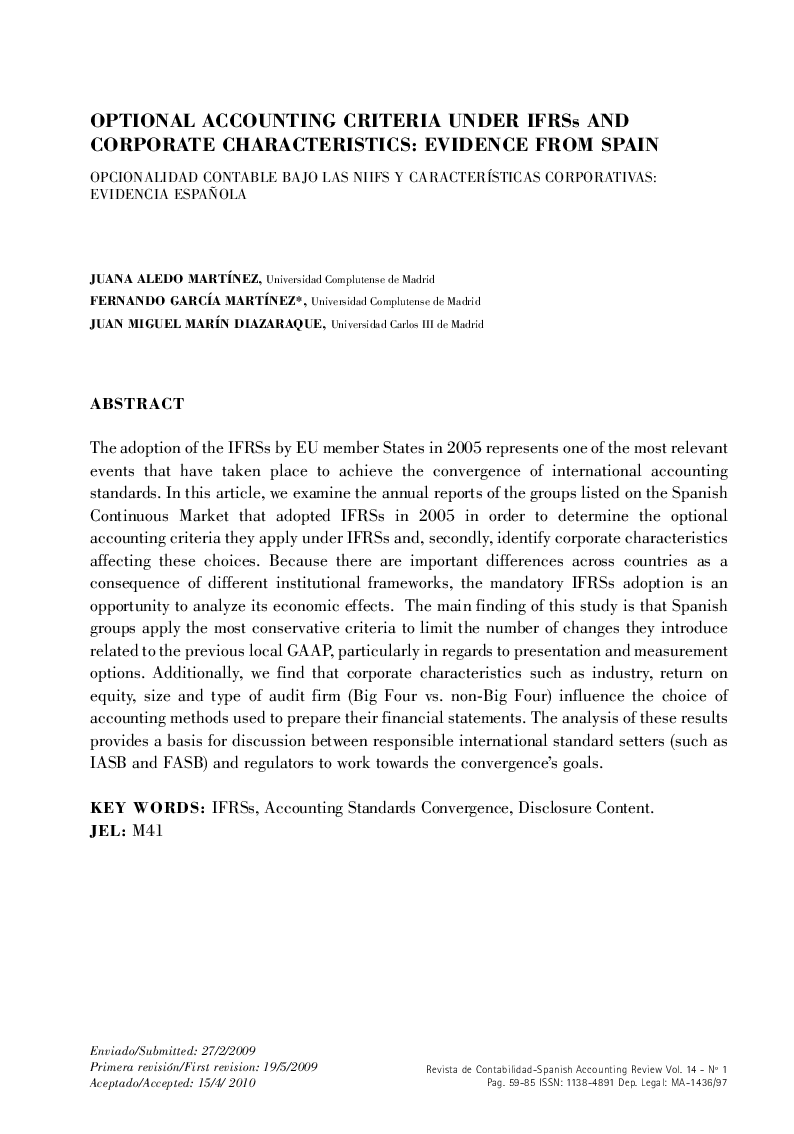| Article ID | Journal | Published Year | Pages | File Type |
|---|---|---|---|---|
| 1006826 | Revista de Contabilidad | 2011 | 27 Pages |
The adoption of the IFRSs by EU member States in 2005 represents one of the most relevant events that have taken place to achieve the convergence of international accounting standards. In this article, we examine the annual reports of the groups listed on the Spanish Continuous Market that adopted IFRSs in 2005 in order to determine the optional accounting criteria they apply under IFRSs and, secondly, identify corporate characteristics affecting these choices. Because there are important differences across countries as a consequence of different institutional frameworks, the mandatory IFRSs adoption is an opportunity to analyze its economic effects. The main finding of this study is that Spanish groups apply the most conservative criteria to limit the number of changes they introduce related to the previous local GAAP, particularly in regards to presentation and measurement options. Additionally, we find that corporate characteristics such as industry, return on equity, size and type of audit firm (Big Four vs. non-Big Four) influence the choice of accounting methods used to prepare their financial statements. The analysis of these results provides a basis for discussion between responsible international standard setters (such as IASB and FASB) and regulators to work towards the convergence's goals.
ResumenLa adopción de las NIIFs por los Estados Miembro de la UE en 2005 representa uno de los acontecimientos en materia armonizadora más importantes de los últimos años. En este artículo examinamos los estados financieros de las compañías cotizadas españolas que integran el Mercado Continuo, con la finalidad de determinar los criterios contables opcionales adoptados de conformidad con las NIIFs, e identificamos las características corporativas de estas compañías que influyen en dicha elección. Los resultados alcanzados revelan que los grupos españoles adoptan los criterios más conservadores con la finalidad de limitar el número de cambios a introducir en relación a los criterios contables locales aplicados con anterioridad, especialmente en lo que a opciones de presentación y valoración se refiere. Adicionalmente, encontramos que factores tales como el sector de actividad, la rentabilidad financiera, el tamaño y el tipo de compañía auditora (Big Four vs. otras) influyen en la elección de los criterios adoptados para elaborar los estados financieros. El análisis de estos resultados proporciona las bases para la discusión entre los principales emisores internacionales de normativa contable (entre ellos, IASB y FASB) y los reguladores que trabajan con el objetivo de alcanzar la convergencia.
